
The Key Insight That Is the Starting Point for a Financial Plan
Most of us want to feel confident about our money, protect our loved ones, and grow our wealth over time. The truth is, knowing exactly where we stand financially is the starting point for a financial plan. Once we have a clear snapshot of our assets, debts, and monthly cash flow, it becomes easier to shape a strategy that matches our aspirations—everything from building a legacy for our children to navigating unexpected life events.
Gather Your Financial Essentials
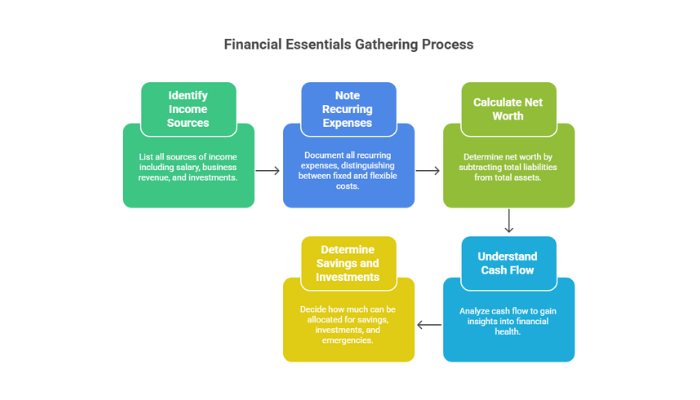
Before we dive into any long-term objectives, we first need to figure out exactly what we earn, spend, save, and owe. We recommend listing out all bank accounts, credit cards, investment portfolios, and loans in one place (even a basic spreadsheet works). According to Investopedia, calculating net worth and understanding cash flow are crucial steps that help us see where our finances stand. That way, we can determine how much we can reasonably set aside for savings, investments, and emergencies.
- Track your income sources (salary, business revenue, investments)
- Note all recurring expenses, both fixed (mortgage) and flexible (entertainment)
- Calculate your net worth by subtracting total liabilities from total assets
Identify Your Needs And Wants
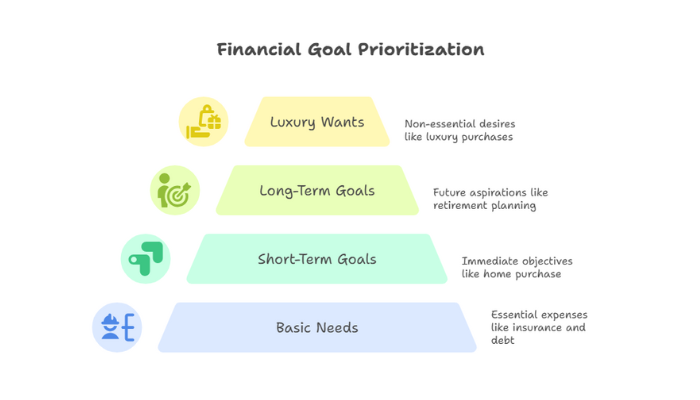
With our complete financial picture in front of us, it’s easier to sort out which goals deserve top priority. From planning for retirement to funding a child’s higher education or simply upgrading a family vacation, the ideal approach differs for each of us. According to Principal, distinguishing must-haves (like insurance coverage and debt repayments) from nice-to-haves (like luxury purchases) lets us structure a budget that feels balanced and realistic.
- Separate goals by time frame (short-term vs. long-term)
- Pinpoint urgent vs. flexible milestones (home purchase vs. vacation)
- Make regular check-ins to adapt your plan as life evolves
Manage Debt Wisely

Many high-net-worth families still carry mortgages, business loans, or credit card balances. Debt can be a strategic tool—especially when investing in business expansions or real estate. However, keeping a healthy debt-to-asset ratio is essential for protecting our credit score and ensuring interest costs don’t erode future earnings. If needed, consider consolidating high-interest debt, and always build in a payment strategy that aligns with your monthly cash flow (Principal).
- Compare interest rates across debts
- Prioritize paying off high-interest balances first
- Revisit your debt strategy anytime major expenses arise
Build A Safety Net
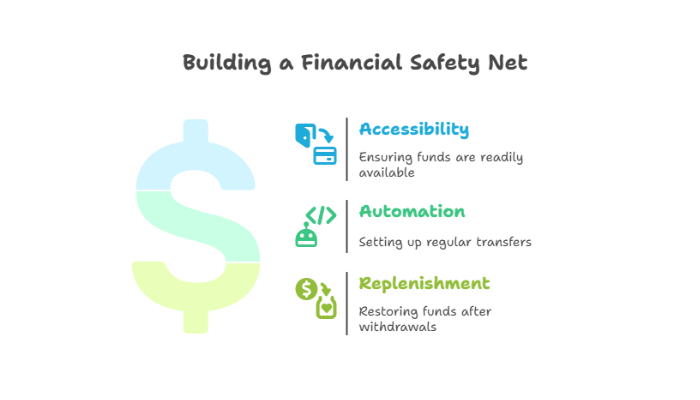
Even the most well-structured wealth management plan can be shaken by accidents, health issues, or sudden market volatility. That’s why we recommend creating at least a three-to-six-month emergency fund. This buffer prevents us from pulling from long-term investments or incurring new debt when unexpected events pop up. Large liquidity events—like selling a business—still benefit from having a cash cushion so we never have to dip into core assets prematurely.
- Keep your emergency fund in an accessible savings or money market account
- Automate monthly transfers to ensure consistent contributions
- Replenish funds right after large withdrawals
Safeguard And Grow Wealth
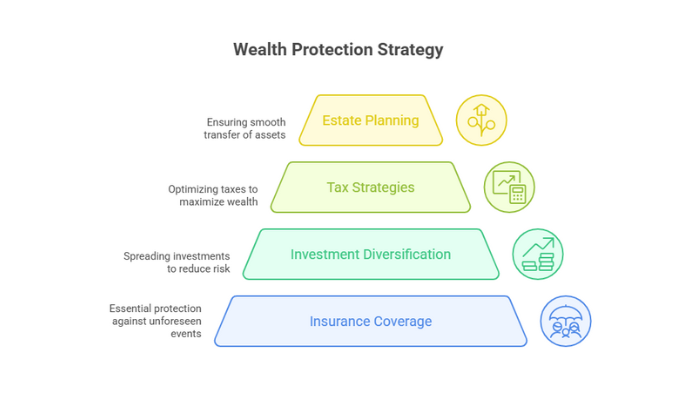
Wealth protection is about more than insurance, though having sufficient coverage is vital. It also involves thoughtful estate planning, investment diversification, and tax strategies that respond to changes in laws or personal circumstances. Our financial planning services can include coordinating trust structures, exploring life or disability insurance policies, and guiding you on risk management. Taking these steps preserves family security and ensures our assets grow according to plan.
- Review insurance needs annually (health, disability, life)
- Explore tax-efficient accounts and investments
- Consider estate planning instruments for generational wealth
Find Ongoing Support
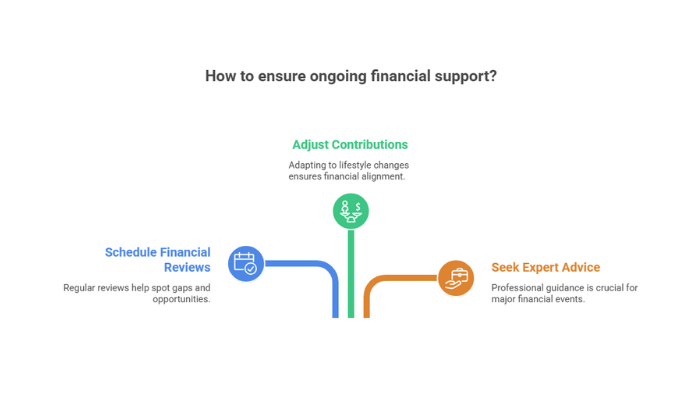
Having regular check-ins with a trusted financial advisor or wealth management team is key. According to Investopedia, a professional can spot gaps, highlight growth opportunities, and help navigate big decisions like mergers and acquisitions, philanthropic giving, or managing concentrated stock positions. Working with experts also provides peace of mind that we’re on track toward our long-term goals.
- Schedule an annual or semiannual financial review
- Adjust contributions or allocations as your lifestyle changes
- Seek experienced advice for major liquidity events or restructures
In one breath, you might ask, “Should we track every dollar, pay off high-interest debts, fine-tune our insurance plan, maximize retirement investments, or set up smart estate arrangements,” and realizing all of this is the starting point for a financial plan. Once we know where we stand and what we want to achieve, the rest of our strategy becomes easier to build—and even more rewarding in the long run. Feel free to reach out if you have questions or want a deeper dive into any step of your own financial journey. We’re here to help.
Recent Posts
Financial Advisors in Los Angeles to Consider
Finding the right financial advisor can be a pivotal step...
Financial Advisors in New York to Consider
Selecting the right financial advisors in New York can play...





